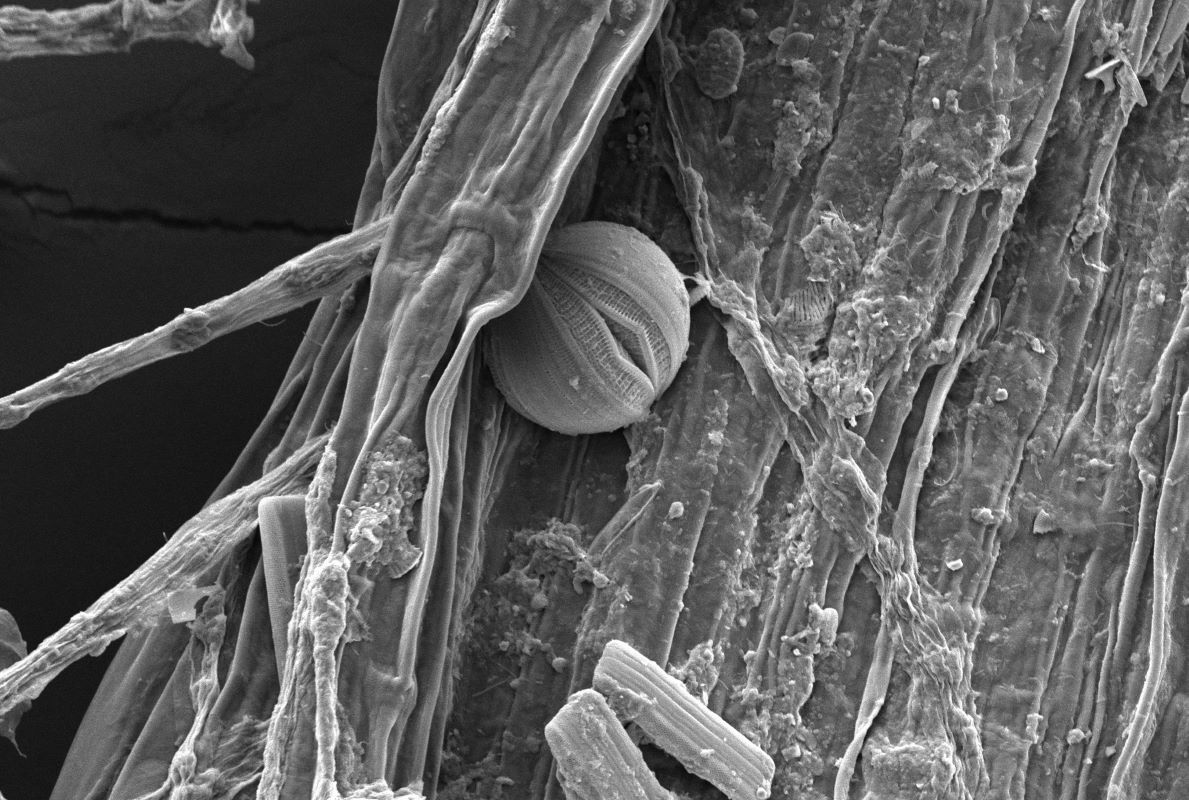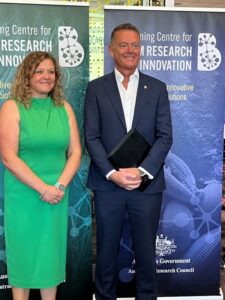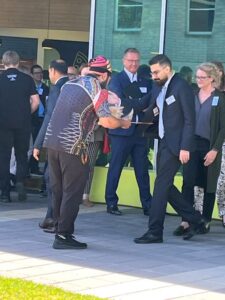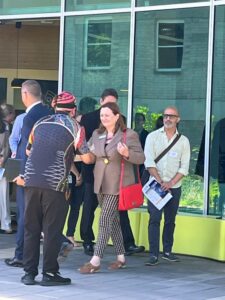
A $12.5 million national research training centre headquartered at Flinders University is driving research solutions into biofilms – complex cells with billion-dollar cost implications for the world’s freshwater supply networks and marine environments.
The new Australian Research Council (ARC) Training Centre for Biofilm Research and Innovation is a collaboration between Flinders, Swinburne University of Technology, and the University of Tasmania and has officially opened with a ribbon-cutting and seminar day held with scientific and industry partners.

It has also welcomed world-renowned University of Toulon (France) investigator Professor Christine Bessy and Ohio State University (USA) Professor Paul Stoodley to the group.
Biofilm Training Centre Director Professor Sophie Leterme explained the implications of biofilms and “biofouling” across the globe were enormous and Australia now has a research powerhouse in place to contribute to the development of solutions.
“Biofilms grow in all environments and on all surfaces, from catheters to drinking water pipes and ships,” Professor Leterme said.

“The work of the Biofilm Training Centre will play a major part in contributing to the global effort to enhance our understanding of biofilms and pioneer innovations to control and eradicate them.”
The Biofilm Training Centre already has major projects underway and significant partnerships forged across defence, technology, environmental and government sectors.
Flinders University President and Vice-Chancellor Professor Colin Stirling said the launch of the research training centre marks a significant milestone in Flinders’ commitment to advancing knowledge, fostering innovation, and contributing to solutions to overcome major environmental, economic, defence and trade issues.
“This goes to the heart of how innovation can transform industries, demonstrating that research and training can tackle complex problems and find solutions that benefit not just industry but the broader community,” Professor Stirling said.
“The training centre is an important reminder of the impact we can create when we come together as collaborators, uniting our expertise, our vision, and commitment to making a difference.”
Associate Professor Vikram Garaniya, Node Leader from the Australian Maritime College based at the University of Tasmania, said their research team jumped at the opportunity to partner on biofilms research to address challenges relevant to the maritime industry.
“We have been collaborating with Flinders for many years, both sharing outstanding students across the two institutions in a joint study program, as well as through our successful ARC Training Centre in Naval Ship Design,” Associate Professor Garaniya said.

“This new ARC Biofilm Training Centre further strengthens our collaborative partnership, and we are excited to work with new and existing industry and university partners to train the next generation of experts in this space.”
Swinburne University of Technology’s Associate Professor Scott Wade added the impact of biofilms on many aspects of society was significant.
“There is an increasing awareness of the significant impact that biofilms have on many aspects of society,” Associate Professor Scott said.
“While Swinburne University researchers have been working on biofilm associated challenges for some time, this new training centre is an amazing opportunity for us to work together with colleagues from Flinders University, the University of Tasmania and industry on this important topic.
“By combining our expertise to develop solutions and train a new generation of biofilm researchers we believe that we can make substantial long-term impacts, much greater than any of us would have been able to achieve alone.”
Among key partners already working with the Biofilm Training Centre at Flinders are ASC, BAE Systems, Defence Science Technology Group (DSTG), Osmoflo, Enware, SA Water, Sparc Technologies, Franmarine Underwater Services, DMTC and the Environmental Protection Agency.






